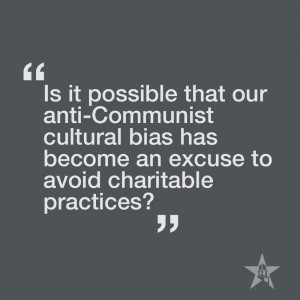An echo of the “Trudeaumania” that swept Canadian culture in the late 1960s has reignited in Canadian hearts from the Northwest Territories to New Brunswick following the recent election of Pierre E. Trudeau’s eldest son, Justin. It’s been almost ten years since the Liberal Party has held the office in Canada – in fact, the 2011 federal election had the worst outcome the Liberals, under the pugnacious Michael Ignatieff, had ever seen: the Conservatives won a majority government, the NDP took second slot and became the Official Opposition Party, and the Liberals won a fractional 11% of parliamentary seats.
So how did the Liberal Party of Canada haul its beaten frame from the mire of the 2011 federal election to take power only four years later in 2015?
 There are a few factors that deserve to be accounted for: Stephen Harper’s sinking popularity, correlated to a rising federal spending deficit, pushed back against the Conservatives’ overwhelming 2011 victory, and the 2011 death of the enigmatic NDP Leader Jack Layton did irreparable damage to the NDP’s surging strength. But the Liberal Party owes a good measure of credit to the young, fresh face of leadership it found in Justin Trudeau.
There are a few factors that deserve to be accounted for: Stephen Harper’s sinking popularity, correlated to a rising federal spending deficit, pushed back against the Conservatives’ overwhelming 2011 victory, and the 2011 death of the enigmatic NDP Leader Jack Layton did irreparable damage to the NDP’s surging strength. But the Liberal Party owes a good measure of credit to the young, fresh face of leadership it found in Justin Trudeau.
Trudeau has been noticed for a variety of reasons since his official election to party leadership in 2013. Newspapers, magazines, and online articles all but sexually objectify the young right honourable, who happens to be Canada’s second-youngest elected PM at forty-four years old. He also has an impressive range of academic experience and qualifications, holding a BA in English Literature and a BEd, as well as some studies in engineering and Environmental Geography.
He’s taught high school students, written a book, and acted in a documentary miniseries. He’s a feminist who wants to legalise marijuana for recreational use and has promised Canada massive electoral reform. But beneath the swirl of gossip, media speculation, and campaign platform promises, who is Justin Trudeau?
I’m not much of a Liberal Party proponent, myself. I tend to favour the New Democratic Party, or NDP, and will always hold a fond space in my heart for Jack Layton. But some of the changes Trudeau has already implemented into the federal government are remarkable.
For the first time in Canadian history, the Cabinet is equally represented by one half female and one half male members, many of whom have an extensive academic and career history in their designated roles. For example, the current Minister of National Defence, Harjit Sajjan, served as a police officer in Vancouver and also served in the Canadian Armed Forces. Born in India and a practicing Sikh, Sajjan is not a person I can imagine Donald Trump appointing to any federal role, despite Sajjan’s professional experience and decorated military career.
These changes may seem infinitesimal, but fair representation for both women and men, from a variety of career, faith, and ethnic backgrounds, is a bold step in the direction of a federal government that understands and represents a nation’s people with fairness and accuracy. Trudeau is still new – his career as Prime Minister is only a few months old – but I, for one, am proud to be Canadian in a promising era of respect for the rights that every Canadian, and every person, deserves.
The future of North American politics looks a little less dim with Justin Trudeau in the Prime Ministerial seat, even as Donald Trump waltzes alarmingly closer to the American presidency. Maybe the future POTUS, whoever he or she might be, will recognize in some of Trudeau’s policies the foundations of a government worth our respect.

